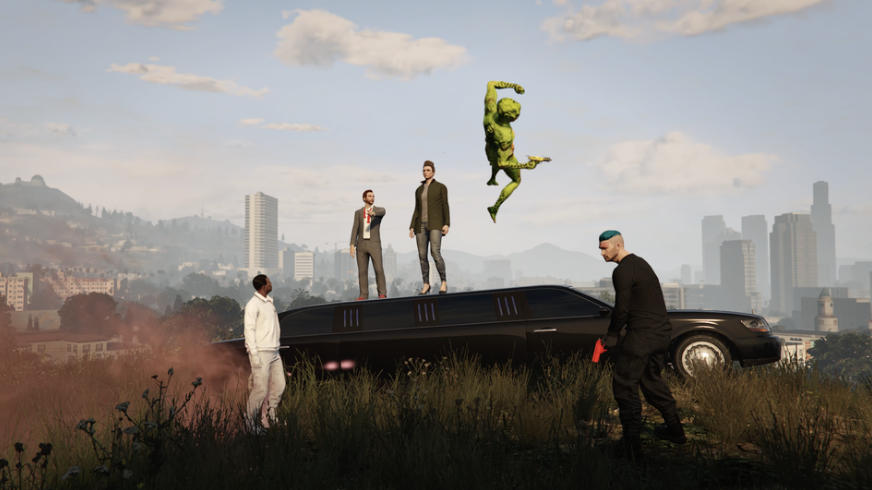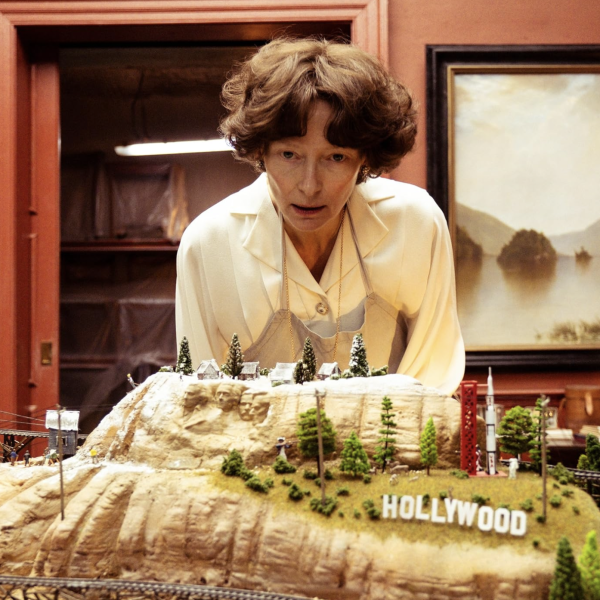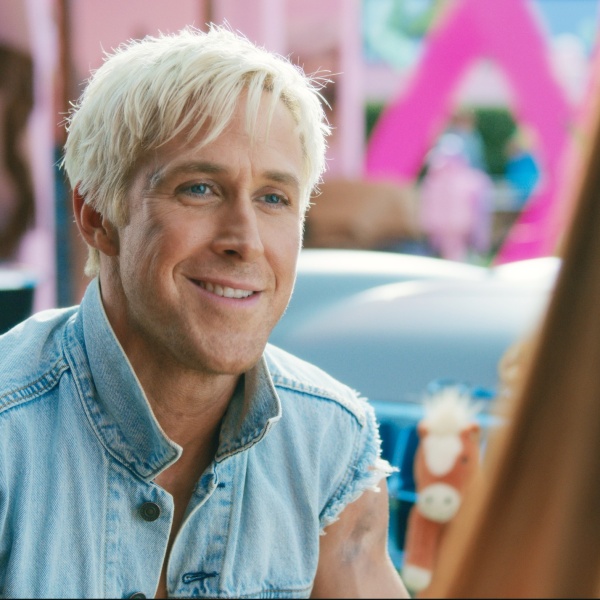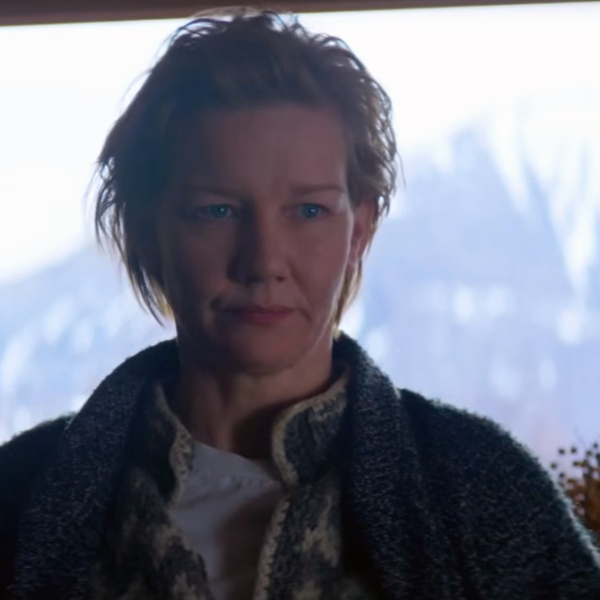To be or not to be. That was the question facing so many artists at the height of the COVID pandemic (let’s call it January 2021), when the crisis seemed as if it might continue forever, and the absence of an audience threatened to chip away at the creative spirit itself. Suddenly unemployed and unable to support his family after landing the biggest role of his life (the titular wizard in the London production of “Harry Potter and the Cursed Child”), British actor Sam Crane couldn’t help but wonder — to quote a certain Danish prince — “whether ‘tis nobler in the mind to suffer the slings and arrows of outrageous fortune, or to take arms against a sea of troubles, and by opposing end them.” Crane may not have shared Hamlet’s attraction to suicide, but he certainly entertained the idea of laying his career to rest before he was eaten alive by its unfulfilled promise.
And he might have done just that if not for the day when he happened upon an empty amphitheater that was screaming for a show. Crane had just finished beating a casino employee to death with his bare fists and then shooting a few random passersby for good measure (we all had to blow off steam somehow), but as he fled the scene on foot — police sirens blaring on his tail — his getaway led him straight to the Vinewood Bowl. It wasn’t a particularly rare occurrence within the violent and anarchic world of “Grand Theft Auto Online,” but what happened next definitely was: Crane’s avatar began spouting the most famous soliloquy from “Macbeth”: “Life’s but a walking shadow, a poor player that struts and frets his hour upon the stage, and then is heard no more. It is a tale told by an idiot, full of sound and fury, signifying nothing.” And then someone came and killed him.
But that was enough to plant the seed of an idea between Crane and his gamer buddy Mark Oosterveen, an actor and assistant director whose credits include everything from car commercials to a small role in Terence Davies’ “Benediction”: Why not stage a Shakespeare play within the world of Rockstar’s video game? Sure, the animation might be a little stiff (Richard Burton never had to perform the Bard with emotes alone), but it would at least be more interesting than another fucking Zoom readthrough or whatever, and it’s not like people were getting their fix of live theater anywhere else.
And so what if the first person who showed up to watch this experiment abruptly shot the only other member of the audience with a rocket launcher at point-blank range before turning his weapons toward the stage? (“If I could just request that you refrain from killing each other or the actors as well,” Crane humbly pleads into the microphone on his PlayStation 5 controller). The crowds at the Globe Theatre weren’t exactly known for their civility, either.
So begins the hilarious and unexpectedly poignant “Grand Theft Hamlet,” a documentary — shot entirely within the virtual world of “Grand Theft Auto Online” — that returns Shakespeare to his rightful place at the intersection between high and low art, and restores a palpable sense of danger to one of the stalest but still most exciting English-language plays ever written. “Hamlet” has been performed in just about every conceivable medium, country, and circumstance on Earth — Ethan Hawke delivering the tragedy’s most famous monologue in the middle of a Blockbuster Video in Michael Almereyda’s film from 2000 is proof enough of that. But it’s safe to say that this is the first time a “Hamlet” rehearsal has been interrupted by a naked alien who can’t stop picking his nose and muttering about drugs. “The show must go on” assumes new meaning when half the cast falls off the top of a blimp in the middle of Act III. So, too, does the notion that the whole world’s a stage.
Co-directed by Crane and his partner, documentarian Pinny Grylls, the first stretch of “Grand Theft Hamlet” has obviously been reverse-engineered from the big idea that breathed it into being (it’s hard to swallow the ostensible spontaneity of the premise, or to accept that Crane just happened to be recording his game footage at the time). Still, the concept is such a good one and already so steeped in artifice that any concerns over its credibility fade away fast in the face of Grylls’ skillful filmmaking. Dedicated gamers will appreciate how deftly she’s able to tame the often erratic camerawork inherent to any third-person sandbox, let alone one as janky and unpredictable as “Grand Theft Auto Online.”
Pared down from 300 hours of in-game material, and always drawing a fascinating contrast between the rigidity of the digital avatars and the expressiveness of the human voices speaking through them, the well-honed “GTA” footage is lucid without losing the chaos of gaming. That balance allows this movie to exist in the compellingly liminal space between concrete and imagined worlds. The “fakeness” of the virtual environment serves to enhance the realness of what Crane and Oosterveen try to create within it, even if the tension between those two polarities is what gives “Grand Theft Hamlet” the forward momentum it needs to sustain itself between sight gags.
Half the fun is seeing what kind of people show up to the in-game auditions, and the ensemble cast is memorable even in their too-small doses. Nora is a trans player who delights in a virtual world that encourages self-expression, leaping at the chance to act in a show that doesn’t confront her with the same biases she might find in a more traditional production. “DJPhil” is a literary agent who uses her nephew’s account to audition. We never learn a lot — or enough — about the naturally talented non-actor who lands the role of Hamlet, but the rocket launcher he brings to rehearsal suggests some lingering discomfort over a project that may force him to bare his soul. Online video games might seem like a good place for people to hide who they really are, but “Grand Theft Hamlet” suggests they can reveal even more about us than we feel comfortable sharing in our waking lives.
At the end of the day, this is really just a “putting on a show” movie of a different sort — one different enough that Crane and Grylls sometimes struggle with striking the right balance between the “how” and “why” of it all. The latter is of greater concern to this broadly existential film about art’s capacity to defy the inherent loneliness of being alive and connect people even in times of profound isolation, but the former is a lot more fun to dramatize here.
So while there are occasional conversations between Crane and Oosterveen about their shared reasons for doing this (some touch upon the separate circumstances they each bring to the table, with Crane a family man and Oosterveen living on his own), the various characters they meet along the way are largely overshadowed by the logistics of wrangling them together. We learn more about the Elsinore-themed office space that Crane rents in the virtual world of Los Santos than we do about many of the actors who fill it out, while Crane and Oosterveen are mostly defined by their perseverance — and despair — in the face of unprecedented challenges.
For instance: I only learned of Crane’s “Harry Potter” gig by reading the film’s press notes, as it’s never mentioned in the body of the film itself. Kudos to Crane for never getting so frustrated by the wait to respawn to mutter about how he was supposed to be on the West End, but his commitment to the bit exposes a missed opportunity for human drama. And even so, we still don’t get much of a window into how Crane and Oosterveen arrived at such inventive staging, or the difficulties of puppeting an avatar at the same time as you’re delivering a vocal performance. Any open-world video game comes with a few empty stretches of nothingness, but it’s hard to shake the feeling that “Grand Theft Hamlet” had so much that might have been used to fill them.
And yet, that nothingness tends to contribute to the “what are we doing this for?” of it all, and few pandemic films have better expressed the desperation to connect with a world full of people who might say “you are bitch” and shoot you in the face whenever you try to reach out. In fact, I’d argue that none of them have. I wish we got to see more of the big show at the end of the movie, but that’s almost beside the point — all that matters is that, somehow, someway, it goes on. As Crane shouts while being murdered for the umpteenth time: “You can’t stop art, motherfuckers!” And those words have seldom been easier to believe than they are here. The rest is silence.
Grade: B+
“Grand Theft Hamlet” premiered at SXSW 2024. It is currently seeking U.S. distribution.





